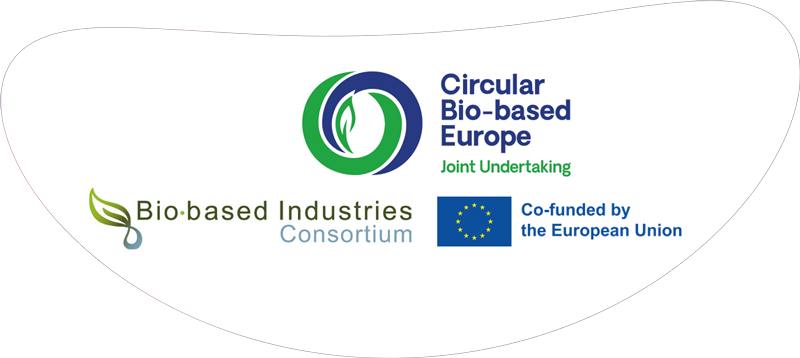Highlights from the workshop “Anticipatory LCA to promote informed decision-making in bio-based product development”
Transparency, innovation, and bridging data gaps for future bio-based products
On 4th December 2024, the BIORING and SuperBark projects successfully hosted an online workshop focused on Life Cycle Assessment (LCA) methodologies for bio-based products development. The event brought together over 60 participants, including researchers, industry experts, and stakeholders, to exchange experiences and insights from various cutting-edge EU-funded projects.
LCA Workshop Objectives
The workshop aimed to facilitate dialogue on applying anticipatory LCA at early TRLs, share best practices and challenges in bio-based product development, and explore collaborative approaches to overcome data sharing and transparency barriers. The agenda began with an introduction to sustainability assessment approaches by the coordinators of the BIORING and SuperBark projects: Nicole Dölker (CSIC) and Marc Borrega (VTT).
Experts from the projects then presented real-world applications of anticipatory LCA. This included contributions from Cyrille Durand (TEMAS Solutions), Jovita Moreno Vozmediano (Rey Juan Carlos University), and Federico Busio (LIST). In addition, representatives from four other EU-funded initiatives shared insights: LIGNICOAT, focused on lignin-based sustainable coatings; THERMOFIRE, working on fire-retardant thermoplastic composites from natural fibers; ZeroF, developing PFAS-free and sustainable alternatives; and FRACTION, innovating fractionation processes for high-purity lignocellulose components.
Watch the plenary session here
Download all the presentations here
Key Challenges and Recommendations
The participants broke out into groups to better understand, discuss, and explore common views on the themes of the workshop, taking advantage of prepared guiding questions. The discussions highlighted critical challenges in implementing LCA for bio-based products and identified actionable recommendations:
Bridging Data Gaps
- Perform “light” LCA at early stages to identify hotspots in safety and sustainability, and identify cut-off criteria, as effective and pragmatic guide to improve the technology and process scalability.
- Conduct sensitivity analyses to qualify the uncertainty of the process, and pinpoint data collection priorities, ensuring more efficient resource allocation.
- Pay special attention to the type of feedstock, geographic variability in agricultural practices, energy mixes, and climate factors to enhance regional specificity in LCA.
- Exchange of information between similar projects as a good opportunity to possibly close the data gaps that characterize R&I activities on novel bio-based products.
Enhancing Data Sharing and Transparency
- Share aggregated environmental impact results rather than raw/primary datasets to protect sensitive information and increase accessibility.
- Sharing knowledge, instead of sharing data, could be encouraged when industries maintain confidential their inventories of materials. This should be done in a systematic way, e.g. in open discussion forums.
- The adoption of approach similar to Environmental Product Declaration could help to improve transparency in sharing sustainability data of existing materials and products.
- Develop European Commission-guided frameworks, including guidelines, best practices, and standardized tools, to foster cross-project collaboration. At the same time, a careful reflection on Open science concepts is strongly required.
Innovating LCA Modeling Approaches
- Software are unvaluable tools for modelling processes, upscaling data from lab to prototype and production level, and calculating mass and energy balances to feed in LCA and anticipatory LCA assessment, but they are limited by lack of data on novel molecules.
- To address these limitations, assessment of novel bio-based molecules could be done using datasets from similar substances and leveraging on generic or literature-based reaction data.
- Proprietary tools have wider datasets and functions, but could be very expensive. Open-source alternatives for mass and energy balances (e.g. DWSIM) could be pragmatic modeling solutions for early-stage assessments.
- Build centralized databases through EU collaborations as valuable option to consolidate data on novel molecules and foster the scale up of bio-based processes and LCA modelling. Organizations such as the Bio-Based Industries Consortium (BIC) could play a leading role.
Communicating LCA Results Effectively
- Align sustainability indicators and ensure clarity in communicating environmental impacts to stakeholders, also to possibly encourage the exchange and positive generation of input data.
- Frame results in functional contexts, focusing on comparison with representative benchmarks that reflect real-world applications and functionalities, based on standard practices (e.g. ISO 14040).
- Develop robust visualizations and standardized reporting formats to enhance the accessibility of LCA findings.
Outlook for the Future
The workshop highlighted the importance of LCA in shaping sustainable bio-based product development. By addressing key challenges such as data gaps, transparency issues, and the complexities of early-stage modeling, participants identified practical solutions that pave the way for innovation. Centralized databases, standardized practices, and European Commission-backed guidelines are essential for ensuring that progress in LCA methodology translates into actionable outcomes for bio-based solutions. Additionally, integrating sensitivity and uncertainty analyses into routine practices can support data confidence and decision-making.
Ultimately, the workshop underscored the importance of a collective effort among stakeholders across industry and academia to drive the adoption of LCA as a strategic tool for environmental sustainability. The BIORING and SuperBark projects aim to continue fostering open dialogue and knowledge exchange, advancing the roadmap toward sustainable bio-based solutions.
Follow up events will be organized in 2025: stay tuned and subscribe to our newsletters!
Subscribe to the BIORING newsletter & subscribe to the SuperBark newsletter


